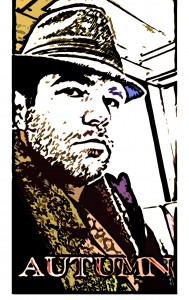 Everybody has their Top Ten lists. Sure, lists are a viral sensation in the Age of the Internet, but let’s not forget that Casey Kasem was counting down our Top 40 favorite songs for years in the Age of Radio. And, in earlier centuries, America’s Founders came up with a Top Ten List of Amendments to the Constitution, which Americans now call the Bill of Rights.
Everybody has their Top Ten lists. Sure, lists are a viral sensation in the Age of the Internet, but let’s not forget that Casey Kasem was counting down our Top 40 favorite songs for years in the Age of Radio. And, in earlier centuries, America’s Founders came up with a Top Ten List of Amendments to the Constitution, which Americans now call the Bill of Rights.
Generations of Medieval theologians gave us lists of angels and archangels, not to mention the Top Seven Deadly Sins. The Hindus gave us a Top Seven list of chakras. Greeks had their Top Twelve list of gods, and Plato had his Top Four list of virtues. Gautama had two lists: the Top Four Noble Truths and Top Eight factors that lead one to the cessation of dukkha.
The West gave us a Top Four list of elements. The East gave us a Top Five list of elements. And Moses counted down the Top Ten Commandments over 3000 years ago.
So, in that ancient and noble tradition, I tried to come up with a Top Ten list of writers who have influenced my writing or my thoughts on writing. Here we go!
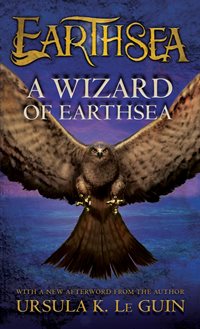 10. Ursula K. LeGuin
10. Ursula K. LeGuin
I gave a confession. I haven’t read Le Guin’s masterwork, the Earthsea series. I have only read a couple of her short stories. Her primary influence on me is as a fellow defender of genre against the artifice of the literati.
In her essay “The Critics, The Monsters, and the Fantasists,” Le Guin not only unravels the Modern Realist bigotry of the Anglophone literary establishment, but reveals how self-loathing and internally inconsistent it is:
Edmund Wilson and his generation left a tradition of criticism that is, in its way, quite a little monster. In this school for anti-wizards, no fiction is to be taken seriously except various forms of realism, which are labeled ‘serious.’ The rest of narrative fiction is labeled ‘genre’ and is dismissed unread. Following this rule, the universities have taught generations of students to shun all ‘genres,’ including fantasy (unless it was written before 1900, wasn’t written in English, and/or can be labeled magical realism).
Although she is certainly one of the most important authors of the 20th century, Le Guin makes my list because she has fought to redeem the vast majority of fiction, so-called genre fiction, from the ghettos into which the misguided and miseducated elite have tried to corral it. Her well-crafted arguments against literary prejudice allow me to feel more at home in speculative fiction than I otherwise would have.
[Note: I know I’ve had my complaints about Le Guin, but you can’t burn down an orchard for a single sour tree]
Okay, so Tolkien is on nearly everybody’s list. He’s the go-to guru for anyone who doesn’t think fantasy fiction is a boil on the behind of literature. This is why I put him near the bottom of my list. I just felt it would be silly to put him at the top like a million other fantasy dork wanna-be writers (like me) would.
But, why do I like him? He certainly wasn’t the first fantasy I ever read; that honor goes to A Thousand and One Nights. What impresses me most about Tolkien is his dedication to making scholarship the foundation of fantasy. Even as a teenager, I was enthralled by the linguistic expertise underlying his stories. As an adult, particularly after having earned a degree in comparative religion, I am equally moved by his theological subtlety. A scholar-author who can steadfastly proclaim the quasi-pagan mythoverse of The Lord of the Rings as “of course a fundamentally … Catholic work” earns my respect a thousand times over.
“Of course,” he says. What brass!
When I think of Tolkien, I think of reclaiming a lost past. Tolkien’s masterwork was an attempt to recreate a mythology of the English Midlands he felt had been smothered by history. American fantasy writers, constantly working under the shadow of Eurocentric tradition, can learn a lot from Tolkien’s methodology.
Barker is not a fiction writer. Far from it. She’s one of those academic scholars whose intense focus is aimed at scraping away the layers of accreted fiction that have become popularly accepted as fact, in her case the accepted history of Abrahamic monotheism.
But, since I included Le Guin not for her fiction but for her criticism, and included Tolkien more for the scholarship behind his fiction than the fiction itself, I felt Barker has a place here too. As with Tolkien, I am primarily impressed with the depth and vision of her research and it has affected my fiction intensely.
Like Tolkien and his beloved West Midlands, Barker attempts to reconstruct (but in a more academic fashion than Tolkien) a lost past underlying modern Abrahamic monotheism that most folks would rather just leave to the shadowy corners of archaeology. And, like Tolkien, her work is thick with linguistic and cultural information that can be a bit overwhelming for the lay person.
But, this depth also makes it evocative. To me, at least.
If I had to choose a non-fiction author who influenced me the most, both as a writer and a scholar, Margaret Barker would be at the top of the list.
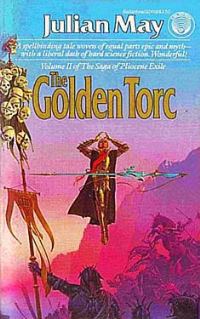 7. Julian May
7. Julian May
May’s “Pliocene Exile” series is a bit naïve, from a cultural and linguistic perspective. The idea that an alien-ruled society from the Pliocene, over two and a half million years ago, would leave recognizable marks on Celtic culture that arose a mere millennia ago strains the suspension of disbelief.
But, the epic scope of her prehistoric sci-fi tale redeems all that.
Ever since reading May’s fantastic series, I have been obsessed with the Messinian Salinity Crisis (which is crucial to the plot) and similar real-world ecological disasters. But, May doesn’t simply rest on the laurels of the catastrophe she chose as the centerpiece of her fiction. She weaves a tale of inter-cultural intrigue and inter-personal struggle pinned to characters that are powerfully written, often deeply damaged psychologically, and unforgettable.
Before I ever learned the lessons of the multi-charactered epic of betrayal and emotion from HBO’s adaptation of Martin’s Song of Ice and Fire, I learned them from Julian May. Anyone who loves Game of Thrones should at least take a taste of May’s The Many-Colored Land.
Speaking of epics in which multiple factions vie for power, the Chanur saga taught me many lessons as a writer. Several species compete in a Compact that is both held together and in constant danger of being rent asunder by inter-species alliance and antagonisms.
A perennial struggle for writers of science fiction is balancing two approaches to alien species: the too-familiar trend—exemplified by Star Trek—of making alien species barely concealed human analogs under a thin veneer of make-up; and the hyper-realistic path of depicting aliens as incomprehensible. Too far in one direction and they insult the intelligence of the reader, but too far in the other direction and the aliens become completely unrelatable.
In her Chanur saga, Cherryh cleverly splits the difference by having her oxygen-breathing aliens resemble zoological types familiar to any human being—echoing lions, apes, bats, etc.—while the methane-breathers are disturbingly exotic, but we can relate to them through the mediation of more similar non-human aliens.
Cherryh was also the first science fiction writer whose depiction of interstellar space captured for me a sense of vastness, isolation, and loneliness.
Despite being easily dismissed as a bit of space opera fluff, the Chanur saga is saturated with serious moral content, conflicted characters, and depth beyond its superficial adventure plot. As intrigued as I am to see the similarly complex The Expanse series adapted for television, I would recommend both May’s Pliocene Exile and Cherryh’s Chanur sagas for adaptation before S. A. Corey’s popular series any day.
I cannot overstate the influence of Melville’s subtle combination of adventure and philosophy on my writing. Among my dream projects would be to write and direct a film adaptation of Moby Dick, using the text-on-screen techniques of Fight Club
and the antique-in-modern tricks of Romeo + Juliet
to negotiate the nonfiction-inside-fiction dynamic of Melville’s classic.
Those who have attempted all previous adaptations of Moby-Dick have resorted to reducing the novel to the adventure schtick, assuming the rest is too boring for the screen. I believe they, like Melville’s 19th century detractors, simply lack vision.
Melville’s genius extends beyond his over-examined magnum opus, no matter how remarkable a reflection of democracy, diversity, and meritocracy Moby-Dick continues to be. If you’ve never read Billy Budd or Typee
, not to mention his immensely underrated poetry
(can I just say, f**k Walt Whitman as the go-to 19th century American poet?) you are truly missing out on literature more relevant to the politics of 21st century America than anything you’ll find in contemporary literature or commentary.
“One who desires to be impartially just in the expression of his views, moves as among sword-points presented on every side,” wrote the poet Melville in the aftermath of the Civil War. In today’s hyper-partisan political environment, is there a more relevant observation? Just as Tolkien sought to reclaim a lost England, sincere dedication to Melville can reclaim a lost America that desperately needs to be reclaimed.
I make no bones about my antagonism toward Walt Whitman, whose work I consider politically facile, schmaltzy, and superficial. I would prefer almost any single poem of Emily Dickinson over the entire life’s work of Whitman any day of the week.
Dickinson is a poet, while I am (primarily) a writer of fiction, but her writing has influenced mine in ways that are hard to quantify. If I had to throw down a concrete influence easy for a lay person to understand, I would have to say Emily introduced me to the power of the em dash.
I know the em dash is named for its typographical length, equivalent of the letter M. Forget that. To me, the em dash honors Emily.
Beyond punctuation, the Prophetess of Amherst taught me how to harness imagery in the service of spiritual and psychological force. She taught me, long before the example of Salinger, that introversion is an emblem of genius, not an emblem of shame. She taught me the power of free verse and, by extension, the power of free prose.
Emily is my Lady of the Word, the modern embodiment of the ancient goddess of Whom the scholar Margaret Barker speaks.
Good God, how can I describe the influence of Chandler and his iconic detective? Marlowe’s negotiation of deep sadness and solitude with the strength of often self-deprecating humor. The juxtaposition of cynical realism and hope for justice. Virtue that does not survive by avoiding temptation in cloister, but by getting down in the dirt and struggling against it.
When I first read Chandler, I recognized my own writing. Not in the excellence of his prose, which is unapproachable, but in his cognitive play with the reader, who (one hopes) is paying close enough attention to detect the subtle winks, nudges, and taps on the shoulder.
And, like Tolkien, Barker, and Melville, Chandler was trying to reclaim a lost past. To him, the hardboiled private eye was the Medieval knight errant plopped down in the post-Industrial wasteland of modern culture.
Parker was a poet, a critic, a short story writer, song lyricist, and a playwright. Also, a smart-ass and a bit of a loner. I wonder why I like her so much?
She’s known particularly for her wit. Yes, Parker’s wit could be crude and vulgar, as when she quipped: “Tell him I was too fucking busy—or vice versa.” But, she could also be as sublime as Dickinson: “They sicken of the calm who know the storm.”
In fact, although Emily certainly surpasses Dorothy in wisdom, the latter embodied both wit and wisdom in a pleasing balance that I consider superior. Moreover, unlike the reclusive Dickinson, Parker managed to maintain her personal independence while remaining fully immersed in the world, its politics, its cultural upheavals, its romance and heartbreak.
When the Viking Press published a series of portable books to distribute to soldiers overseas during World War II, only three remained continuously in print: The Bible, William Shakespeare, and Dorothy Parker. I’d say that’s good company.
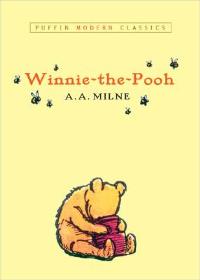 1. A. A. Milne
1. A. A. Milne
Okay, fine. Yes, I topped my list with an author known primarily for his children’s literature. In the age of YA and kid lit ascendency, you’d think this would be a virtue. But, I suspect it won’t be received that way, particularly after his delightfully subtle tales have been Disneyfied into saccharine toxicity.
If you know Milne also wrote a murder mystery, you might think that’s my attraction to him as a writer. However, I agree with Chandler’s rather brutal dismantling of Milne’s celebrated Red House Mystery in the essay “The Simple Art of Murder.” Detective stories were not Milne’s strength. Pooh was.
Like Chandler’s swipe at Red House, Dorothy Parker poured acid on Milne’s The House at Pooh Corner, famously claiming she “fwowed up” while reading it. However, she also claimed Milne was once her “only hero” and that her opinion of him changed when he “went quaint.”
Milne is remembered as a sort of childhood guru while Parker’s legacy is decidedly adult, but you can still see the resonance between them. Both manage to balance wit and wisdom. And, both of them loved their clever wordplay. The difference is that cynical Parker’s wit relied on shared intelligence between herself and her audience, a wink passed over the heads of the words themselves, as when she snarked: “That woman speaks eighteen languages, and can’t say ‘No’ in any of them.” The wit in Milne’s Pooh stories relies on shared intelligence, too, but in explicit contrast to the ignorance or misunderstanding of the characters, as when Pooh quips: “People say nothing is impossible, but I do nothing every day.” The writer and reader are slipping the real meaning of the phrase under the words.
In fact, you can almost imagine odd-couple dialogues between a knowing Parker (real quotes below) and a naïve Pooh (whose lines I have invented):
“The cure for boredom is curiosity,” she told him.
“Oh! And what’s the cure for that?” Pooh asked.
“There is no cure for curiosity.”
… or …
She shook her head. “This wasn’t just plain terrible. This was fancy terrible.”
“Fancy terrible?” Pooh mumbled, trying to decide if he understood.
“This was terrible with raisins in it!”
“My, that does sound fancy.”
In fact, grumpy Parker could play a perfect Eeyore (both of the quotes below are real):
“Every year,” she grumbled, “back comes Spring, with nasty little birds yapping their fool heads off and the ground all mucked up with plants.”
Pooh smiled and nodded. “The Spring has sprung, the grass is rizz. I wonder where them birdies is?”
The final connection between Milne and other writers on my list is with Melville.
I was never exposed to Milne’s original Pooh stories as a child, being diverted to Disney’s watered down adaptations. The first time I read Milne in the original, I was in my 20’s, and it was a revelation. He was a master of writing stories with two purposes in mind, presuming they would be read by an adult to a child. If you’ve never read Winnie the Pooh with an ear to Milne’s double audience, please do. It’s genius.
And, it is in this subtle layering of purpose that Milne resembles Melville. In fact, Moby-Dick‘s two layers has precisely the same maturity gradient as Pooh’s, with an overt narrative for the less mature and a subtler layer for those who have eyes to see and ears to hear. And, they both rely on straddling the boundary between fact and fiction: as Melville’s masterpiece is inextricably linked to his own whaling experiences (not to mention the real-world whale attack on the Essex) the characters in the Pooh stories were based on Milne’s son and his stuffed toys.
What strengths put Parker and Melville on my list put Milne at the top of it.

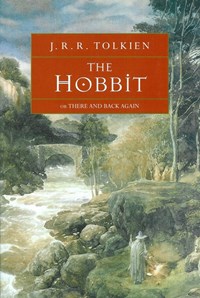 9.
9. 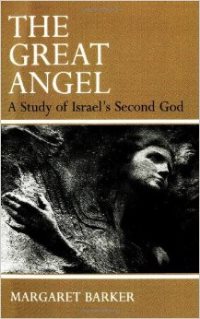 8.
8. 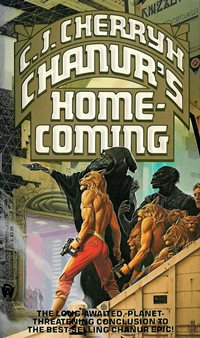 6.
6. 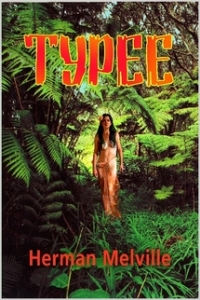 5.
5. 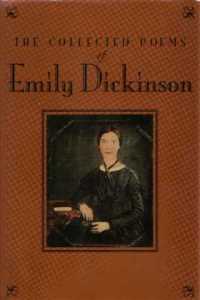 4.
4. 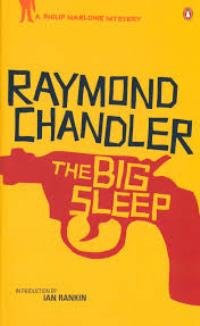 3.
3. 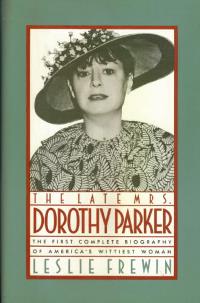 2.
2.